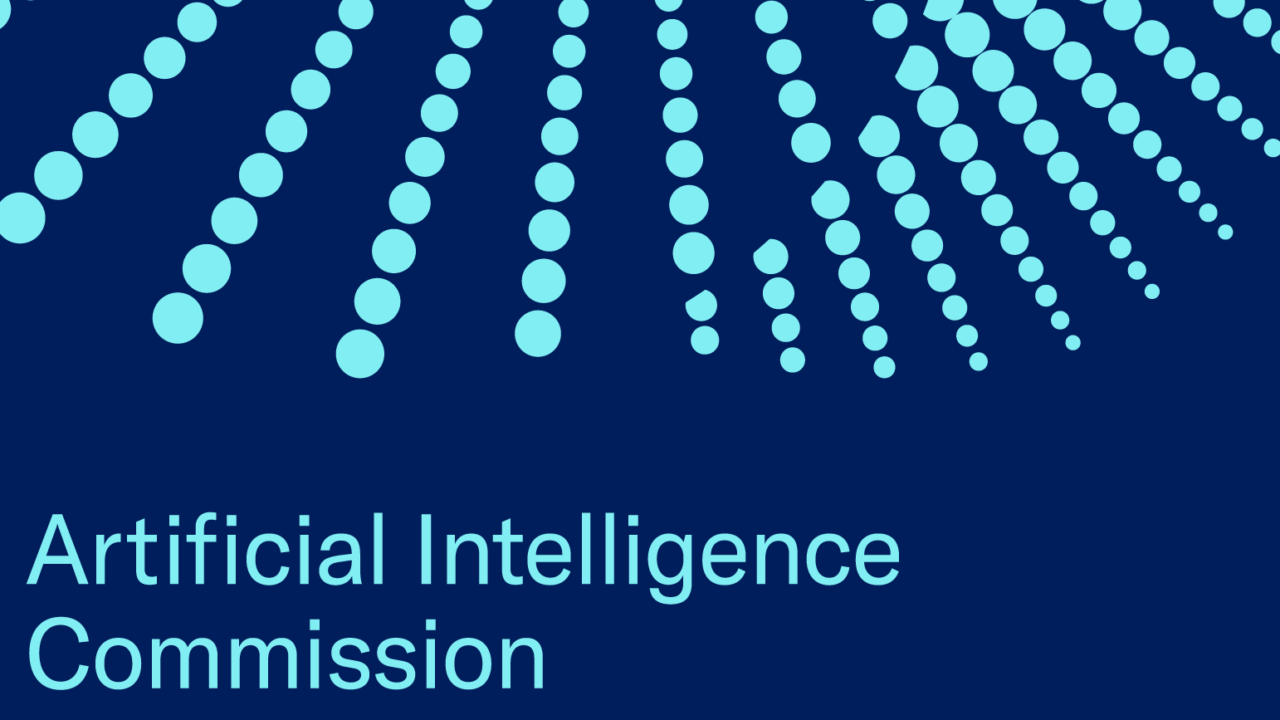
U.S. Chamber Launches Bipartisan Commission on Artificial Intelligence to Advance U.S. Leadership
WASHINGTON, D.C.- The U.S. Chamber of Commerce today announced the launch of its Artificial Intelligence (AI) Commission on Competition, Inclusion, and Innovation to advance U.S. leadership in the use and regulation of AI technology.
“Artificial intelligence is rapidly changing how businesses operate, and this emerging technology can be a tremendous force for good in developing new medical treatments, identifying cyberthreats, expanding opportunities for the underserved, and making communities safer and more prosperous,” said Suzanne P. Clark, president and CEO of the U.S. Chamber of Commerce. “Technological innovation is foundational to a thriving 21st century economy. We must leverage AI to compete globally, and we need reasonable and responsible rules governing the use of AI that harness its potential while effectively mitigating its risks.”
The Chamber’s AI Commission, co-chaired by former Rep. John Delaney (D-MD) and Rep. Mike Ferguson (R-NJ), will convene thought leaders with experience in government, industry, and civil society to address the advancement and challenges of adopting AI in communities across the country.
“Artificial intelligence and automation are fundamentally changing every aspect of our lives. From helping develop vaccines in breaking time to finding ways to reduce our carbon footprint, the use of AI is already making a lasting impact,” said Rep. John Delaney. “However, harnessing the full potential of this technology also means addressing the complex questions and challenges surrounding its use to provide the necessary guard rails to allow the technology to continue to fairly flourish. As co-chair of the commission, I look forward to working with my co-chair, former Representative Mike Ferguson, and hearing from Americans across the country to develop strong, bipartisan, and consensus-driven recommendations around these complex questions, which will allow AI to continue to help the American public.”
The Commission will request input from all relevant stakeholders, meet with top researchers, and conduct field hearings to see AI issues firsthand. The Commission will then recommend durable, bipartisan AI policy solutions to ensure the United States continues to lead in innovation while fostering fairness in deploying this revolutionary technology.
“Artificial intelligence isn’t science fiction. Machine-learning is at our doorstep with its promise to revolutionize every sector of our economy and touch nearly every aspect of our lives,” said Rep. Mike Ferguson. “That transformative impact raises significant questions for U.S. policymakers, especially as both competitive and adverse nations race to gain AI dominance over the United States. I’m proud to serve as a co-chairman of this important commission, which will provide U.S. policymakers with a consensus roadmap to promote technological innovation and to advocate for AI’s economic and societal benefits, such as increasing human safety, health and productivity. However, we also will carefully examine and prudently reflect on questions of potential workforce disruption, consumer and investor protections, and biases in algorithmic decision-making.”
The Commission is composed of AI experts from the public and private sector as well as academia. Members of the Commission currently include:
Alex Dimakis, Professor, ECE Department, UT Austin; Co-Director, National AI Institute on the Foundations of Machine Learning (IFML)
Rachel Gillum, Head of Global Policy, Office of Ethical & Humane Use of Technology, Salesforce
Jerry Jones, Executive Vice President, Chief Ethics and Legal Officer, LiveRamp
Shekar Katuri, Data Science Executive, Bank of America
Christina Montgomery, Vice President and Chief Privacy Officer, IBM
Brent Orell, Senior Fellow, American Enterprise Institute
Osonde Osoba, Senior Information Scientist, RAND Corporation
Adam Thierer, Senior Research Fellow, Mercatus Center, George Mason University
Conrad Tucker, Arthur Hamerschlag Career Development Professor of Mechanical Engineering, Carnegie Mellon University
The Chamber adopted AI policy principles in 2019 but the role of the Commission is to bring together a diverse set of voices within and outside industry to develop long-lasting policy solutions.
The Commission is now seeking comments on questions pertaining to artificial intelligence definitions. Comments are due on February 18 at 5:00 PM ET and should be submitted via email to AICommission@USChamber.com.
The Commission will hold its first field hearing in Austin, Texas on March 10, 2022, focusing on issues related to global competitiveness and regulations.
For more information on the open comment period and the Commission’s work, visit AmericanInnovators.com/AICommission
The Weekly Download
Subscribe to receive a weekly roundup of the Chamber Technology Engagement Center (C_TEC) and relevant U.S. Chamber advocacy and events.
The Weekly Download will keep you updated on emerging tech issues including privacy, telecommunications, artificial intelligence, transportation, and government digital transformation.
